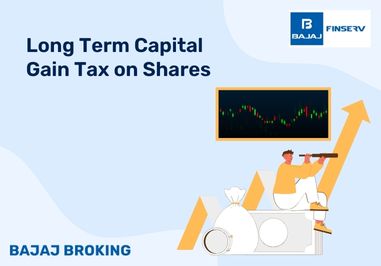Nasdaq and Nifty are two of the most recognised stock indices. However, they represent vastly different economies, investment strategies, and opportunities. In a nutshell, Nasdaq is a technology-dominated U.S. index, whereas Nifty 50, the Indian counterpart, is a perfect representation of India’s top 50 companies across industries.
These indices aren’t just numbers on a chart but they truly do represent the economic health, investor sentiment, and growth potential of two major markets. Now, while global financial markets offer numerous opportunities, understanding the key differences between Nasdaq and Nifty is essential for making better decisions. Let’s take a closer look at Nasdaq vs Nifty, how these indices operate, their unique features, and the factors that set them apart.
What is the Nasdaq?
The Nasdaq, short for the National Association of Securities Dealers Automated Quotations, is one of the largest stock exchanges in the world, (second-largest by market cap) known for its focus on technology-driven companies in America. Established in 1971, it was the first electronic stock exchange that brought a change in which securities were traded. Unlike traditional floor-based exchanges, Nasdaq operates entirely through electronic systems. This makes trading faster, more efficient, and transparent.
Often referred to as a tech-heavy index, the Nasdaq is home to companies that define modern innovation, including Microsoft, Apple, Amazon, Meta Platforms, Alphabet, and Tesla. It is divided into the Nasdaq Composite (tracking all listed companies) and the Nasdaq-100 (tracking the 100 largest non-financial U.S. and international companies).
For Indian investors, the Nasdaq is quite important as it offers a peek into the performance of global technology leaders and sets the tone for market sentiment worldwide.
How Does Nasdaq Work?
The Nasdaq operates as an electronic stock exchange that leverages modern tech to facilitate efficient and transparent trading. Here’s a breakdown of how it works:
Electronic Trading: Unlike traditional exchanges with physical trading floors, Nasdaq operates entirely online. It uses quite sophisticated systems to match buyers and sellers in real-time. This ensures high-speed transactions and global accessibility.
Market Makers: Nasdaq relies on market makers or financial institutions or brokers to provide liquidity. These entities quote buy (bid) and sell (ask) prices for stocks, thereby ensuring that the trades occur smoothly.
Bid-Ask Spread: The bid-ask spread represents the difference between the highest price a buyer is willing to pay and the lowest price a seller is willing to accept. This spread impacts trading costs and reflects overall market conditions.
Listing Requirements: To be listed on the Nasdaq, companies must meet strict financial criteria. Some of this may include minimum market capitalisation, share price, and earnings benchmarks. These rules ensure the exchange hosts high-quality and well-performing companies.
Trading Hours: Nasdaq operates from 9:30 AM to 4:00 PM ET. However, it has extended pre-market (4:00 AM to 9:30 AM ET) and after-market (4:00 AM to 8:00 PM ET) trading hours. This flexibility accommodates global investors and offers opportunities to trade beyond the standard hours.
What is Nifty?
Nifty, short for the National Stock Exchange Fifty (NSE Nifty 50), is India’s benchmark stock market index. It represents the performance of the top 50 companies listed on the National Stock Exchange (NSE) across various sectors. These companies are carefully selected based on their market capitalisation, liquidity, and representation of key industries in the Indian economy.
Launched in 1996, Nifty has become a major indicator of the health of the Indian stock market. Being one of the biggest and oldest stock exchanges in India, it provides investors with a snapshot of how the market is performing and serves as a map for mutual funds, ETFs, and individual portfolios.
Unlike Nasdaq, which focuses on global tech companies, Nifty shows the diversity of the Indian economy, including sectors such as IT, banking, pharmaceuticals, and energy. For Indian investors, Nifty is indeed a go-to tool to gauge the country’s economic and corporate strength.
How is the NIFTY Index Calculated?
The NIFTY 50 index is calculated using the free-float market capitalisation-weighted methodology. Note that this ensures that only the publicly available shares of a company contribute to the index weight. Here’s how the calculation works:
Selection of Companies: The NIFTY 50 consists of 50 large-cap companies across various sectors. They are selected based on their liquidity, market capitalisation, and trading volume.
Free-Float Market Capitalisation: The free-float market capitalisation is determined by multiplying the stock’s market price with the number of publicly tradable shares. Note that this excludes shares held by government entities, promoters, or strategic investors.
Base Year and Base Value: The index uses a base year (1995) and a base value of 1,000 to standardise its calculation.
Periodic Adjustments: The index is rebalanced semi-annually to ensure it accurately reflects the changing market. Companies can be added or removed based on their performance and compliance with criteria.
Weightage: Each company’s weight in the index is determined based on its free-float market capitalisation relative to the total market capitalisation of all 50 companies.
How Can You Invest in the Nifty 50?
Investing in the Nifty 50 index is an excellent way to gain exposure to India’s top-performing companies. Here are some easy ways to invest:
Index Funds: Invest in mutual funds that track the Nifty 50 index. These funds replicate the index composition, thereby offering a diversified portfolio at relatively low costs.
Exchange-Traded Funds (ETFs): ETFs tracking the Nifty 50 can be purchased and sold on the stock exchange, just like shares. In fact, they are a cost-efficient option for passive investors who want to mirror the index’s returns.
Direct Equity Investments: You can individually purchase shares of the companies listed on the Nifty 50. However, this requires significant capital and in-depth research to maintain the balance of the index.
Derivatives Market: Advanced investors can explore Nifty 50 futures and options. These derivatives are traded on the National Stock Exchange (NSE). It also allows you to speculate or hedge based on the index’s movements.
Systematic Investment Plan (SIP): Some index funds allow SIPs. This allows you to invest a fixed amount periodically. Furthermore, this facility also helps in rupee cost averaging and disciplined investing.
Steps to Start:
Open a demat and trading account with a reliable broker.
Research thoroughly and select your preferred method of investment.
Use online trading platforms to invest in index funds, Exchange-Traded Funds, or individual stocks.
With its focus on India’s blue-chip companies, the Nifty 50 is indeed an ideal option for long-term wealth creation. However, before investing, make sure you understand what is nifty, evaluate your financial goals, risk appetite, and investment horizon to make the most of Nifty’s growth potential.
Nasdaq vs Nifty: A Comparative Parameter
Here's a tabular representation of the two indices across different parameters. Understanding the major Nasdaq vs Nifty differences helps investors choose the right strategy for their investment goals.
Parameter
| Nasdaq
| Nifty
|
Origin and Market focus
| U.S. based index that focuses on technology-driven companies
| India-based index representing the top 50 large-cap companies across diverse sectors
|
Composition
| Over 3,300 listed companies (primarily from the tech sector, but also includes healthcare, consumer services, and more)
| Comprises 50 companies from various sectors, including IT, finance, energy, and FMCG
|
Performance Benchmark
| Nasdaq Composite, Nasdaq 100
| Nifty 50
|
Sector Dominance
| Technology-heavy, with major players like Apple, Microsoft, and Tesla
| Balanced sector representation, led by finance, IT, and energy
|
Geographic Relevance
| Represents the U.S. economy but also has a global influence due to multinational companies
| Represents India’s economy and its domestic growth potential
|
Trading Hours
| Operates during U.S. market hours (9:30 AM to 4:00 PM EST)
| Trades during Indian market hours (9:15 AM to 3:30 PM IST)
|
Listing Requirements
| Stricter requirements for listing, including financial strength and corporate governance
| Companies must meet free-float market cap and liquidity criteria to be included
|
Currency Impact
| Prone to fluctuations in the U.S. dollar. This impacts global investors
| Prone to Indian rupee fluctuations, especially for foreign investors
|
Investment Options
| Invest through index funds, ETFs, and direct equity in Nasdaq-listed companies
| Invest through ETFs, mutual funds, or derivatives based on the Nifty
|
Dividend Yield
| Generally lower, as most companies reinvest profits for growth
| Relatively higher dividend yield due to mature companies
|
Volatility
| Higher volatility due to tech-sector concentration
| Lower volatility compared to Nasdaq, because of its sectoral balance
|
Weightage Methodology
| Market capitalisation-weighted index
| Free-float market capitalisation-weighted index
|
Regulatory Oversight
| Regulated by the U.S. SEC and FINRA
| Regulated by SEBI (Securities and Exchange Board of India)
|
Global Influence
| High global impact due to the dominance of U.S. tech firms
| Moderate influence, primarily affecting Indian and the other emerging markets
|
Final Thoughts
Both Nasdaq and Nifty represent their respective markets and highlight the economic and financial trends of the US and India. For Indian investors, choosing one between Nasdaq vs Nifty depends on their financial goals, risk appetite, and understanding of the markets. Nevertheless, combining investments in both indices can be a smart strategy, thereby balancing global tech opportunities with India’s growth potential.
By understanding how these indices work, investors can make better decisions, regardless of what exactly they want; i.e., to benefit from India’s expanding economy or gain exposure to international tech markets.
Disclaimer: Investments in the securities market are subject to market risk, read all related documents carefully before investing.
This content is for educational purposes only. Securities quoted are exemplary and not recommendatory.
For All Disclaimers Click Here: https://bit.ly/3Tcsfuc









_slider.jpg)



